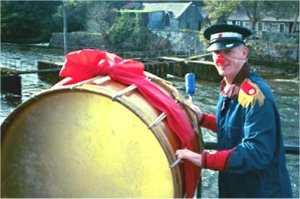Just as there are principles which guide us in how we live, work and relate to each other, there are princi-ples which help define community arts activities. Naturally, the use of these principles in community arts activities differs from project to project. Keeping these principles in mind when you are setting out to do a project, or are engaged in one, can provide a framework that will strengthen your project and its creative process.
Four Principles of Community Art
1. Mutual Respect
Mutual respect the consideration that all participants give to and receive from each other while work-ing on a project is a fundamental principle which runs through every stage of community arts work. The very nature of community arts the working relationship between artist and community collaborating on an artistic project demands that this principle be upheld at all stages of a project. Methods which allow for mutual exchange of skills, know-ledge, enthusiasm, inspiration and satisfaction among participants need to be recognized and carried out for a community arts project to be success-ful. The community arts projects, The Women s Circus (page 44) and The Mountain Project (page 22) are excellent examples of this.
2. Process and Consensus
Process how the creative work is initiated, planned, designed, pro-duced, documented and critiqued is as important as the product or out-come in a community arts project. Consensus, or reaching agreement among participants through effective management of the decision making process at each stage of the project, is paramount to the collaborative nature of community arts.

County Galway Community Arts Network.

County Galway Community Arts Network.
3. Inclusivity
By its very definition, community arts involves the active participation of community members in the creative process. It is paramount, therefore, for those organizing a community arts project to include all those com-munity members wanting to play a role in the project. The manner in which this occurs differs from project to project.
4. Generosity of Spirit
The fourth principle of community arts is generosity of spirit a willing-ness to trust and contribute to the collective artistic process and vision of a project. This spirit may manifest itself in any number of ways such as patience and adaptability, for example. Generosity of spirit engages the artist and community in a synergistic relationship where the whole is greater than the sum of its parts. Few obstacles can impede the short-and long-term benefits and results of community-based art work infused with this kind of spirit.
